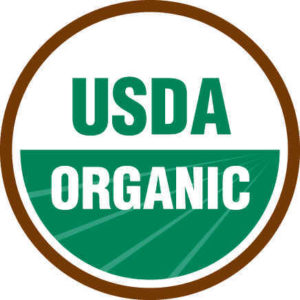Certificates
Certificates

The National Organic Program (NOP) develops the rules & regulations for the production, handling, labeling and enforcement of all USDA organic products. This process referred to as rulemaking involves input from the National Organic Standards Board (a Federal Advisory Committee made up of fifteen members of the public) and the public. The NOP also maintains a handbook that includes guidance, instructions, policy memos, and other documents defining their organic standards.

The principle of organic agriculture involves the sustainable production of food from balanced and fertile soil. The farm has to be managed according to the organic regulations, that is without genetically modified organisms (GMO) and synthetics. During production and processing, the organic and non-organic products must be clearly separated so that contamination be prevented. To reach the organic market, the whole chain of production needs to be inspected. Should all requirements be fulfilled, the organic certificate is issued and the applicable logo can be used on the certified products.
Organic imports from outside the EU need to be covered by a Certificate of Inspection (COI) through the EU Commission based IT Tool ‘TRACES’. Since October 19th 2017, then commonly used Import Transaction Certificate (ITC) cannot be used anymore for import into the European Union.
Ecocert Certifications global network of offices allows us to make certification more efficient and cost effective whilst upholding the same stringent professional auditing and certification procedures.

Fair for Life promotes an approach to Fair Trade that allows all producers and workers who are at a socio-economic disadvantage to access a wider range of social and economic benefits. Fair Trade is part of a broader context of sustainable development within a region that safeguards and supports the local social fabric, particularly in rural settings. These principles hold true equally well in the Global South as the Global North and apply throughout the whole supply chain covering producers, traders, manufacturers and brand holders.